Gregory King, MFA, Kent State University
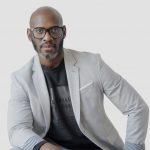
Gregory King, MFA is an associate professor of dance at Kent State where he also serves as the artistic director of the Kent Dance Ensemble. He was the 2018 recipient of the Outstanding Creative Contribution award from the Division of Diversity, Equity and Inclusion at Kent State University and served as Provost Faculty Associate for the academic year 2019-2020.
Performance lecture: Supporting BIPOC faculty beyond representation, April 20, 2022
What responsibility do we have for making equity-minded decisions, as well as creating and supporting policies and cultures of belonging, so BIPOC faculty can thrive? How can white-identified faculty spend their privilege to actionably eliminate inequitable practices in recruitment, retention, and promotion? These questions are at the center of the presentation titled Supporting BIPOC Faculty Beyond Representation. This public presentation will feature Associate Professor of Dance, Gregory King, who will present his personal narrative, national data, and tools that could help BIPOC faculty succeed in the academy. Participants will be asked to reflect on, evaluate, and plan for actions and interventions that create equity for BIPOC faculty across multiple domains of their faculty career. www.gregoryaking.com.
Dr. Mays Imad, Pima Community College
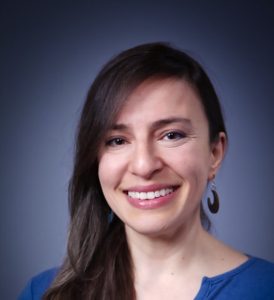
Mays Imad is a neuroscientist and professor of pathophysiology and biomedical ethics at Pima Community College, the founding coordinator of the Teaching and Learning Center, and a Gardner Institute Fellow. Dr. Imad’s current research focuses on stress, self-awareness, advocacy, and classroom community, and how these relate to cognition, metacognition, and, ultimately, student learning and success. Through her teaching and research, she seeks to provide her students with transformative opportunities that are grounded in the aesthetics of learning, truth-seeking, justice, and self-realization.
Teaching “After” the Pandemic: Perspectives on Trauma, Teaching, and Learning, August 11, 2021
Mays Imad draws on her research on stress, self-awareness, advocacy and classroom community in relation to cognition, metacognition, and ultimately student learning and success.
Khalil Gibran Mohammad, Harvard Kennedy School
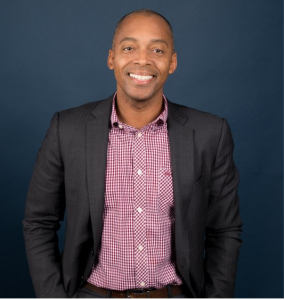
Dr. Khalil Gibran Muhammad, Professor of History, Race and Public Policy at Harvard Kennedy School and the Suzanne Young Murray Professor of the Radcliffe Institute for Advanced Studies.
Antiracism and the Struggle for American Democracy, March 10, 2021
This lecture considers the long history of freedom struggles among African Americans to achieve a multiracial democracy in search of meaningful patterns about what might come next. In light of the dramatic events of the past twelve years, with the historic election of the first Black president followed by Donald Trump, one of the most anti-democratic and pro-white supremacist Presidents since the end of slavery, what lessons should we draw from US history in consideration of the way forward as a nation.
Dr. James Lang, Assumption University
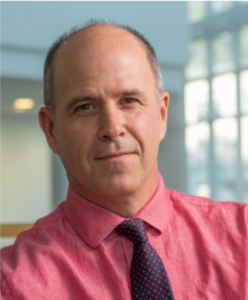
James M. Lang is a Professor of English and the Director of the D’Amour Center for Teaching Excellence at Assumption University in Worcester, MA. He is the author of five books, the most recent of which are Distracted: Why Students Can’t Focus and What You Can Do About It (Basic Books, 2020), Small Teaching: Everyday Lessons from the Science of Learning (Jossey-Bass, 2016) and Cheating Lessons: Learning from Academic Dishonesty (Harvard University Press, 2013), and On Course: A Week-by-Week Guide to Your First Semester of College Teaching (Harvard UP, 2008).
Teaching Distracted Minds: Old Challenges, New Contexts, February 17, 2021
Faculty concerns about distracted students have intensified as we have all shifted online, but our real focus should be on how we help students achieve attention. This presentation draws upon scholarship from history, neuroscience, and education in order to argue that distractions are endemic to the human condition, and can’t be walled out of the physical classroom or online course. Instead, we should focus on creating educational experiences that cultivate and sustain attention. Participants will learn about a variety of potential pathways to developing such experiences for their students.
Cheating Lessons: Learning from Academic Dishonesty, February 17, 2021
When students engage in academically dishonest behaviors, they may be responding to subtle pressures in the learning environment that interfere with deep learning and nudge them toward cheating. Hence if we can gain a better understanding of the reasons for academically dishonest behavior, we can use that knowledge to improve our course design, teaching practices, and communication with students. This session will provide an overview of the various pressures that push student toward academic dishonesty, propose solutions for helping students learn how to do their work with integrity, and invite discussion about how to build a campus culture of academic integrity.
Dr. Lisa Hanasano, Bowling Green State University
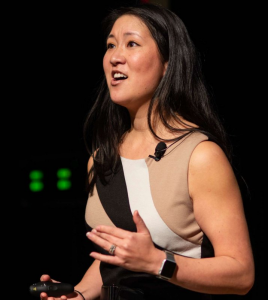
Dr. Lisa K. Hanasono (Ph.D., Purdue University), is an associate professor of communication studies at Bowling Green State University (BGSU). As a communication scholar, her research program focuses primarily on issues related to diversity, equity, and inclusion.
Spring Forward: Transformational Teaching Practices that Support Students’ Success, January 13, 2021
Last spring, the global pandemic forced many universities and colleges to abruptly close their campuses and pivot to remote learning. Since then, faculty have worked tirelessly to adapt, innovate, and evolve their teaching practices to support their students’ success and build inclusive learning spaces. Guided by recent research and best practices, Dr. Lisa Hanasono will present a collection of transformational teaching practices that will help faculty spring forward into the new semester, promote inclusive excellence, and support students’ success.
Communicating Inclusivity: Workshopping Classroom Activities and Assignments, January 13, 2021
Are you interested in designing more inclusive classroom activities
and assignments? In this interactive workshop, Dr. Hanasono will provide a set of
practical principles, tips, and strategies for creating more inclusive activities and
assignments. In addition to receiving several sample activities and assignments,
you will have an opportunity to develop or adapt an activity or assignment that
could be useful in your own courses.
- Links send viewers to the University’s video archives in Panopto. University community members can register for a Panopto account.
5.3.2022AK
